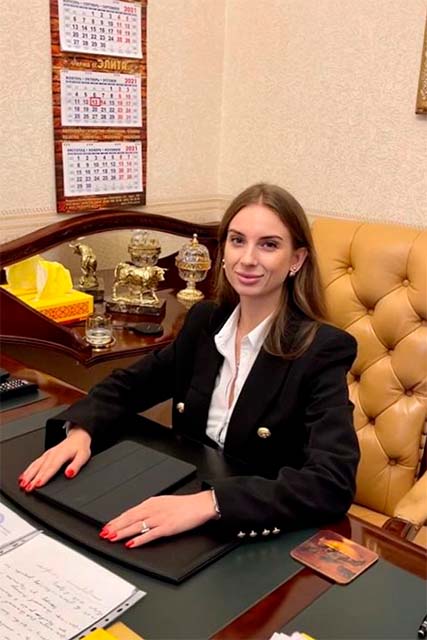Asylum in Czech Republic
A refugee flees due to danger related to race, religion, nationality, politics, social group, or experiences war, torture, or inhumane treatment. Refugee status is defined by the 1951 Refugee Convention and the 1967 Protocol.
A refugee seeks protection in the host country, known as asylum. Subsidiary protection applies if ineligible for refugee status but unable to return home for serious reasons. These are collectively termed international protection.
The Asylum Act in the Czech Republic defines criteria for international protection. The Department of Asylum and Migration Policy assesses and decides on granting protection. The Czech Republic follows EU’s Common European Asylum System.
How to apply for international protection in the Czech Republic
Consider this before applying:
You may be granted asylum:
- if you’re not an EU citizen and have faced persecution in your country of origin or habitual residence, or if you fear persecution in your country of origin preventing your return.
- If you face persecution based on:
- Race or nationality – for instance, due to your ethnicity or language minority status.
- Religion – such as being a member of a religious minority or converting to another faith.
- Membership in a specific social group – like experiencing violence due to your gender or sexual orientation, or fearing persecution related to your family ties.
- Political opinion – for example, if you’re a journalist, blogger, human rights activist, or viewed as a government opponent.
You may receive subsidiary protection if:
– You are unwilling or unable to return to your country of origin (or habitual residence if stateless).
– Due to risks like a death sentence, execution, torture, inhumane treatment, or threats to your life or physical well-being.
– This risk arises from indiscriminate violence in an international or domestic armed conflict.
When and how to apply?
To seek international protection in the Czech Republic:
- Express your intention immediately at the border upon entry.
- Contact the authorities (Foreigners Police, reception center, or police department) if not in detention.
- Clearly state that you are a refugee and wish to apply for international protection or asylum because you fear returning to your country, your life is at risk, or you’ve faced persecution.
To apply for international protection in the Czech Republic:
- At international airports: Make your application at the airport’s border check.
- Reception center in Zastávka: Apply at the Foreign Police office located at Havířská 514, Zastávka u Brna, if you are already in the Czech Republic.
- Detention: Apply from a detention facility within 7 days of apprehension and detention by the Foreign Police.
- Other places (custody, hospital, etc.): Submit a written application directly to the Ministry of the Interior at Nad Štolou 3, Prague 7, Post Code 170 34, or email [email protected].
How is the asylum application formally registered in Czech Republic?
The Department for Asylum and Migration Policy (DAMP) of the Ministry of the Interior handles international protection applications in the Czech Republic, including refugee and subsidiary protection status. DAMP also issues temporary protection visas for those fleeing the Ukraine conflict.
For more information, visit the DAMP website.
Applicants must undergo fingerprinting and image recording for identity verification. Additionally, they must surrender travel documents and may be subject to searches. A medical examination is conducted to assess health.
Following these procedures, applicants are typically transferred to a residential center while awaiting a decision. They may opt for private accommodation at their own expense.
What will happen next?
You’ll go to a reception center for initial asylum processing, including identification and a medical check. These centers are closed and have a legal time limit, typically 7-14 days, with a maximum of 120 days.
The Ministry of the Interior’s Refugee Facilities Administration (RFA) manages these facilities and services, ensuring client safety. Find facility details on the RFA website.
What are your rights and duties during the asylum procedure?
As an asylum-seeker, you can stay in the Czech Republic until your case is decided and receive a residence permit for asylum-seekers, usually valid for around 60 days and extendable every one or two months.
You can access public healthcare and start working after 6 months of applying for international protection.
After reception center procedures, you can stay at residential centers in various locations. Applicants have freedom of movement, receive financial allowances, and can access social, legal, and psychological assistance, as well as participate in leisure activities and Czech language courses.
During the asylum procedure, you have the right to free legal aid and an interpreter in your language. Your information is confidential, and you must be truthful and provide detailed reasons for leaving your country. Travel outside the Czech Republic is not permitted during the procedure.
What if you receive a positive decision?
If granted asylum, you’ll receive permanent residence with rights and duties like Czech citizens, except voting and conscription. Subsidiary protection offers a one-year long-term residence permit. Both cases allow access to the State Integration Programme.
What if you receive a negative decision?
If you get a negative decision, you can appeal to the Administrative Court. The decision text specifies the timeframe. You can seek legal help. If you don’t appeal, you’ll receive an exit visa to leave the Czech Republic.
For assistance or advice on obtaining political asylum in Czech Republic, contact our asylum lawyers for a consultation via messenger or by mail or our contact form. We offer comprehensive support, including accompanying you to all authorities and providing expert advice throughout the procedure.


